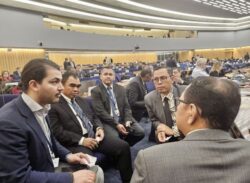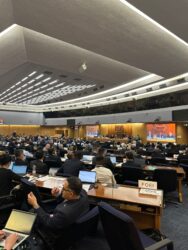
Methanol Institute preparing the G20 Brasil 2024 at the International Energy Agency in Paris!
Rafik Ammar, Director of Government and Public Affairs in Brussels, and Tatsuya Hoshino, Deputy General Manager at Mitsui & Co., Ltd. (MI member), discussing the challenges of energy regulation in Paris.
The Methanol Institute was invited to the International Energy Agency (IEA) in Paris with stakeholders from many countries, industries, international organizations and experts. This gathering aimed to discuss the challenges of energy regulation.
In addition to crucial discussions, future actions have been planned:
- The complexity of the Life Cycle Assessment (LCA) and the importance of defining the elements to be included in the LCA was emphasized, indicating that these discussions are as much political as technical.
- It has been proposed to organize more forums and targeted workshops to discuss in depth the different aspects of biofuels, with a focus on technologies, market policies and carbon accounting.
- The discussions recognized the crucial role of market mechanisms and called for collective reflection to develop a coherent approach to carbon accounting. It was also noted that advanced biofuel technologies are expensive, requiring reflections on the financing modalities for their large-scale deployment.
- These discussions are followed by a special G7 in Turin, with the participation of the IEA and other important organizations. This meeting will focus on sustainable biofuels and will conclude with the presentation and signing of the Turin Joint Declaration on sustainable biofuels. The Methanol Institute is happy to join its partners to support the Turin Joint Declaration for the G7!
These steps highlight the ongoing efforts to integrate biofuels into global carbon emission reduction strategies and the potential role of biofuels and biomethanol in the global energy transition.

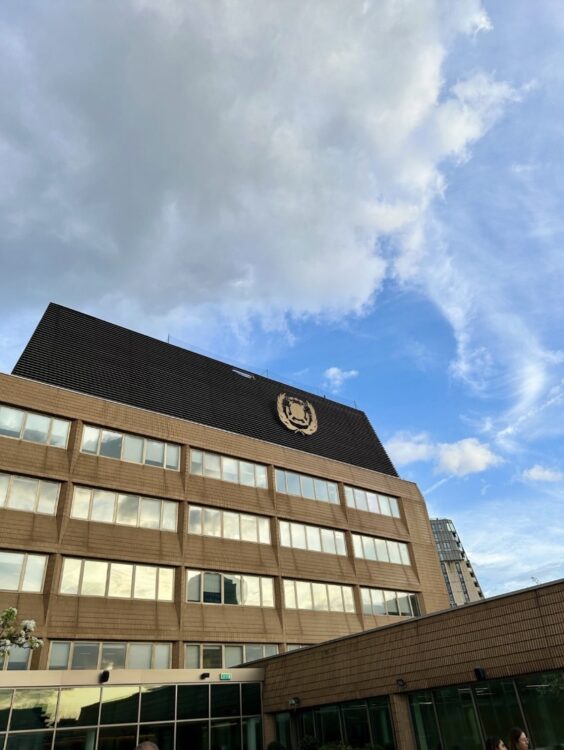
Methanol Institute at the IMO!
March 2024 – Rafik Ammar, Director of Government and Public Affairs in Brussels, at the MEPC 81 in London to discuss measures on biofuels and carbon capture to accelerate the transition to cleaner and more sustainable maritime transport.
As always, the Methanol Institute was present at this essential rendez-vous at the International Maritime Organization in London!
Following the adoption of the 2023 IMO Strategy at the MEPC 80 in last July, the ISWG-GHG 16 and MEPC 81 were focused on mid-term measures, on biofuels and CO2 capture onboard, although focusing on separate topics, converge on a shared vision: accelerating the transition to cleaner and more sustainable maritime transport.
The discussion on the use of biofuels reaffirmed the growing interest in alternative fuels. Although methanol has not been explicitly mentioned, the emphasis on the need for clear guidelines for the safe use of biofuels paves the way for increased recognition of methanol.
These discussions at the IMO marked a crucial step towards the set objectives. A global approach Well-to-Wake with a carbon price mechanism is necessary to navigate towards a more sustainable maritime future.
The Methanol Institute will always be standing with all the flag states to explore all possible solutions and achieve the ambitious goals that are set. See you at the next round of negotiations
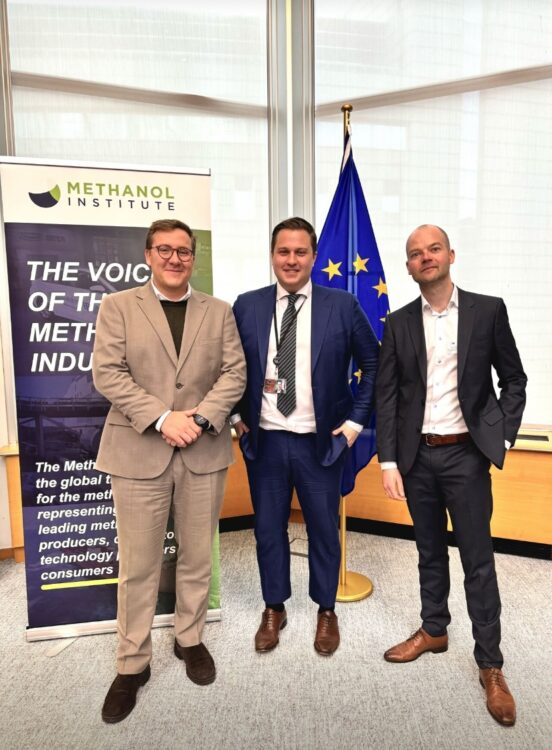
Methanol Talks Breakfast at the European Parliament!
March 2024 – “2040 Climate Target: How do we build on previous climate policies to deliver carbon-neutral mobility for Europe?”
Promising exchanges for the future of climate in the EU at our Methanol Talks session of March 2024!
2040 Climate Target: How do we build on previous climate policies to deliver carbon-neutral mobility for Europe?
This is the weighty question we endeavored to answer at the European Parliament.
Our high-level attendees braved the early morning to join us for breakfast and participate to a fruitful debate chaired by MEP Bergur Larsson Lokke Rasmussen (DK, Renew Europe). We also had the pleasure of listening to a captivating presentation from the Danish e-methanol producer European Energy on the success of their e-methanol plant in Kasso, Denmark.
Emil Vikjaer-Andresen, the head of Power-to-X at European Energy, highlighted the urgent need for a European market to provide infrastructure capable of transporting electrons and molecules throughout the EU. E-fuels producers still face challenges, including a lack of robust long-term demand signals. Concrete incentives and investments are eagerly anticipated from the future Commission to ensure the successful delivery of European climate objectives.
The future Parliamentarians will have the responsibility to monitor the implementation of legislation while seeking more incentives to produce green fuels and create an internal market for carbon capture to reach EU climate targets.
We look forward to our next edition!
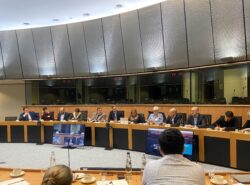
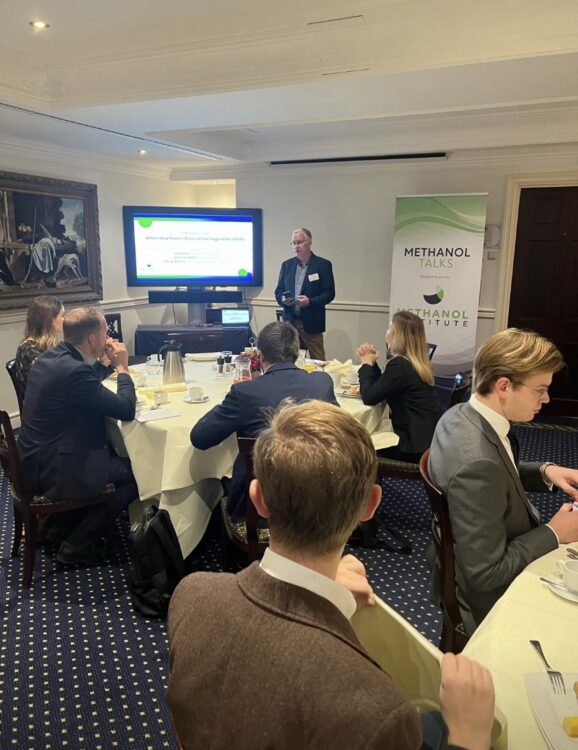
Last Methanol Talks Breakfast of 2023 with our global CEO Greg Dolan!
The implementation of the Alternative Fuel Infrastructure Regulation and the importance of addressing methanol infrastructure deployment in ports to facilitate the energy transition.
We were pleased to host our global CEO Greg Dolan, Johannes Veldt from MI member Evos, and Niklas Da Silva from the Permanent Representation of Sweden to the EU as speakers at our last Methanol Talks session of 2023.
This time, we focused on the implementation of the Alternative Fuel Infrastructure Regulation and the importance of addressing methanol infrastructure deployment in ports to facilitate the energy transition.
Our fruitful exchanges concluded on these key elements:
- Incentives programs must be set up to support port investment in larger berths to enable higher throughput.
- The same programs must address port access to key equipment, such as double walled storage units and hoses fitted to be compatible with methanol.
- Rules on segregated storage for bio-based fuels must be replaced with alternative tracing / chain of custody mechanisms to drive biomethanol bunker uptake.


